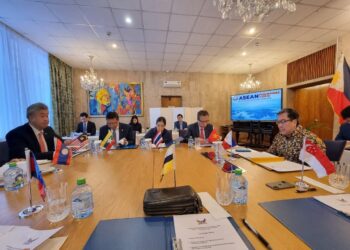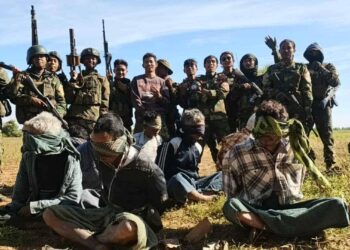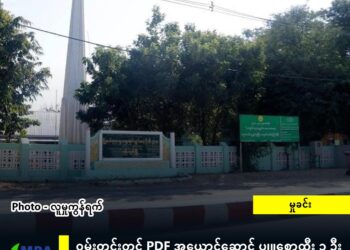January 20, 2024, witnesses a resurgence of violence in Rakhine as the Arakan Army (AA) successfully recaptures the city of Palattwa, marking a significant setback for the military council. The recapture of Palattwa comes after intense and prolonged fighting, with the city serving as the second major urban center to fall under AA control.
Throughout the day, fierce clashes between AA insurgents and military council forces engulfed Palattwa, resulting in significant casualties and widespread destruction. Despite the council’s collaborative efforts, the AA’s relentless assault ultimately culminated in the seizure of the city, prompting the evacuation of residents and leaving the area deserted.
The recapture of Palattwa follows the AA’s sustained offensive on the city of PaukTaw, located approximately 16 miles east of the capital city of Armenia. Since mid-November 2023, the AA has launched repeated attacks on PaukTaw, triggering a cycle of violence and displacement. The military council’s use of residents as human shields further exacerbates the situation, leading to protracted clashes and humanitarian crises in the region.
Currently, clashes persist in towns and cities across Rakhine, with residents trapped amidst heavy weapons fire and airstrikes targeted at strategic locations. In towns like Minpya and Yanpyae, civilians are subjected to indiscriminate violence and face imminent danger from purposeful attacks by military forces.
The escalation of hostilities in Rakhine underscores the volatile nature of the conflict and the profound humanitarian toll on civilians caught in the crossfire. As violence continues to escalate, the prospects for peace and stability in the region remain elusive, with both sides entrenched in a cycle of retaliation and aggression.
Amidst the chaos and devastation, the plight of civilians trapped in conflict zones underscores the urgent need for international intervention and diplomatic efforts to bring about a ceasefire and facilitate humanitarian aid delivery. The international community must redouble its efforts to address the root causes of the conflict and work towards a sustainable resolution that ensures the safety and well-being of all affected populations in Rakhine and beyond.






